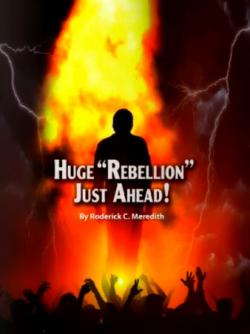Ask Not?
Is it realistic to hope for a world of peace, freedom and prosperity?
Fifty-two years ago—a little more than two generations ago—on January 20, 1961, in his only inaugural address, United States President John F. Kennedy called on his audience to support him in advancing the ideals of freedom and common prosperity. As the U.S. prepares for the second inaugural address of President Barack Obama, how have the U.S. and other Western nations fared in achieving President Kennedy’s goals?
In his famous address, President Kennedy stated: “To those new states whom we welcome to the ranks of the free, we pledge our word that one form of colonial control shall not have passed away merely to be replaced by a far more iron tyranny. We shall not always expect to find them supporting our view. But we shall always hope to find them strongly supporting their own freedom—and to remember that, in the past, those who foolishly sought power by riding the back of the tiger ended up inside. To those people in the huts and villages of half the globe struggling to break the bonds of mass misery, we pledge our best efforts to help them help themselves, for whatever period is required—not because the Communists may be doing it, not because we seek their votes, but because it is right.”
Where do we stand today? Consider this assessment by political analysts Samuel Chi, Kevin Sullivan and Gregory Scoblete, in their essay The State of the World in 2012: “Several key questions hang over the world.… Will the Eurozone collapse? Will the Arab Spring yield a new and generally more stable and benign Middle East or something worse? Will the U.S. and NATO find a satisfying off-ramp in Afghanistan? Will Iran’s nuclear program trigger an arms race, or worse? Will China avoid a political or economic crisis?”
The grand ideals put forth in President Kennedy’s address are certainly worth pursuing. However, they are not new, as mankind has since the very beginning sought their fulfillment. Nearly two millennia ago, Jesus Christ came to the earth preaching a message of peace and prosperity for all, which would be found through the coming Kingdom of God. Christ came to a world that then, as now, had not known such peace and prosperity for most of mankind. Bringing a message from the very Author of peace and prosperity, He told His listeners that He came “that they may have life, and that they may have it more abundantly” (John 10:10).
Jesus Christ exemplified by His life the only sure way to freedom and prosperity, showing by example the path of benevolent leadership and personal sacrifice. He said, “You call Me Teacher and Lord, and you say well, for so I am. If I then, your Lord and Teacher, have washed your feet, you also ought to wash one another’s feet” (John 13:13–14). Even now, He is training Christians to take up future roles serving under Him in the coming Kingdom of God, where they will play a vital part as “kings and priests” in a future that will be wonderful beyond anything President Kennedy—or anyone alive today—could imagine: “And they sang a new song, saying: ‘You are worthy to take the scroll, and to open its seals; for You were slain, and have redeemed us to God by Your blood out of every tribe and tongue and people and nation, and have made us kings and priests to our God; and we shall reign on the earth’” (Revelation 5:9–10).
In his inaugural address, President Kennedy made another famous request—calling on his listeners to make personal sacrifices for the good of others: “And so, my fellow Americans, ask not what your country can do for you; ask what you can do for your country. My fellow citizens of the world, ask not what America will do for you, but what together we can do for the freedom of man…”
To learn more about the amazing future God has planned for mankind, read our booklets Your Ultimate Destiny and The World Ahead: What Will It Be Like? Order your own free copies from the Regional Office nearest you (listed on page 30 of this magazine) or go online to TomorrowsWorld.org to order or read online.






